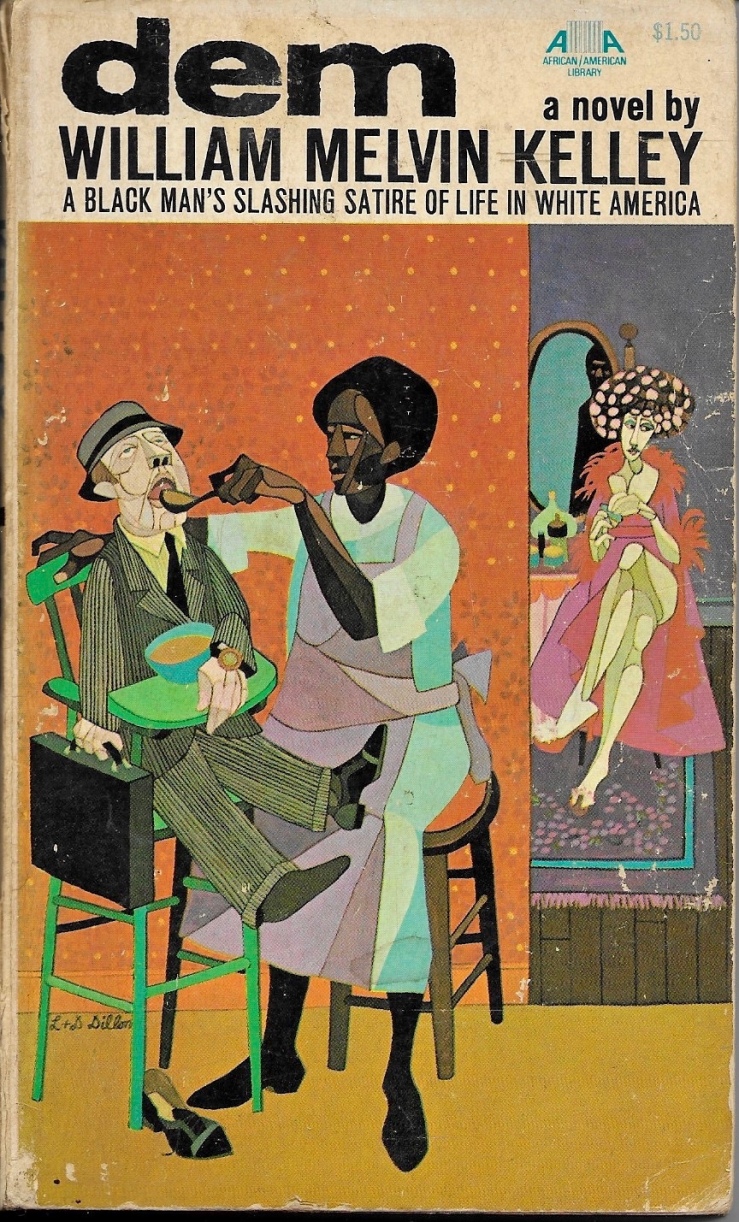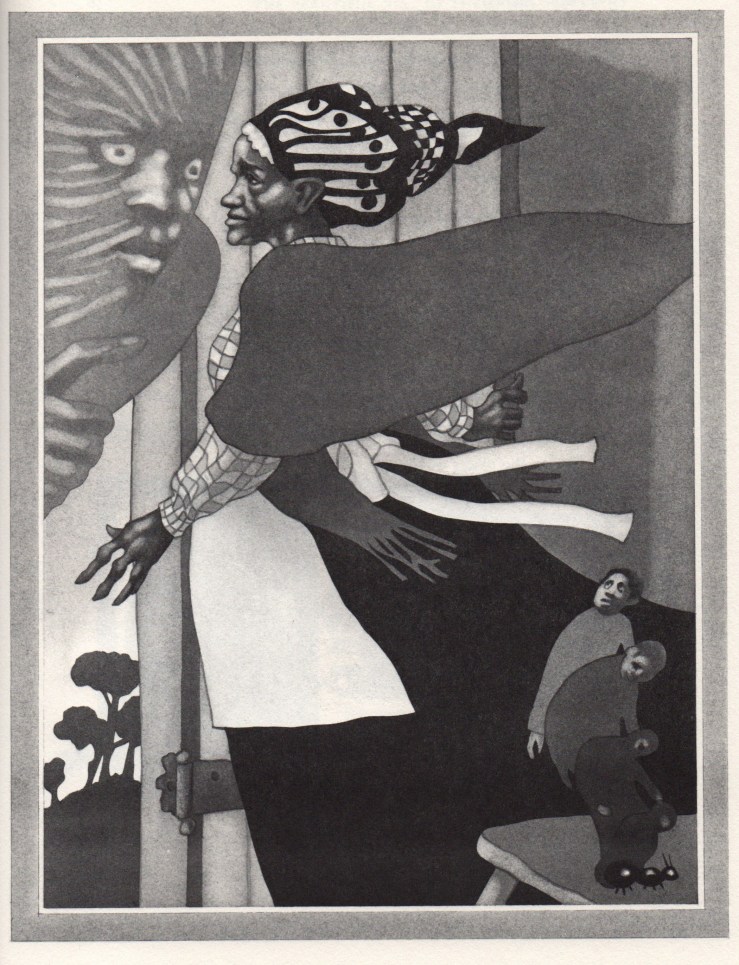

dem, William Melvin Kelley. Collier Books (first Collier edition, 1969). Cover art by Leo and Diane Dillon. 141 pages.
Possibly one of my favorite covers by the Dillons. dem is not Kelley’s best novel–that would be Dunfords Travels Everywheres—but his knives are out here and the book is very funny. Thankfully, WMK’s books were reprinted a few years ago (used copies of his first novel A Different Drummer aren’t hard to find, but the rest are). Here’s a bit from my riff on dem back in 2020:
Kelley’s style in dem is choppier, sharper, more cartoonish than his Faulknerian debut A Different Drummer and if dem skews towards absurd irony where Drummer was heroic-tragic, both novels are rooted in intense anger tempered by strange empathy.
As its subheading attests, dem is, like Drummer, a take on white people viewing black people, and over a half-century after its publication, many of the tropes Kelley employs here still ring painfully true. His “hero,” Mitchell Pierce is a lazy advertising executive, bored with his wife, a misogynist who occasionally longs to return to the “wars in Asia.” He’s also deeply, profoundly racist; structurally racist; the kind of racist who does not think of his racism as racism. At the same time, Kelley seems to extend little parcels of sympathy to Pierce, even as he reveals the dude to be a piece of shit, as if to say, What else could he end up being in this system but a piece of shit?






